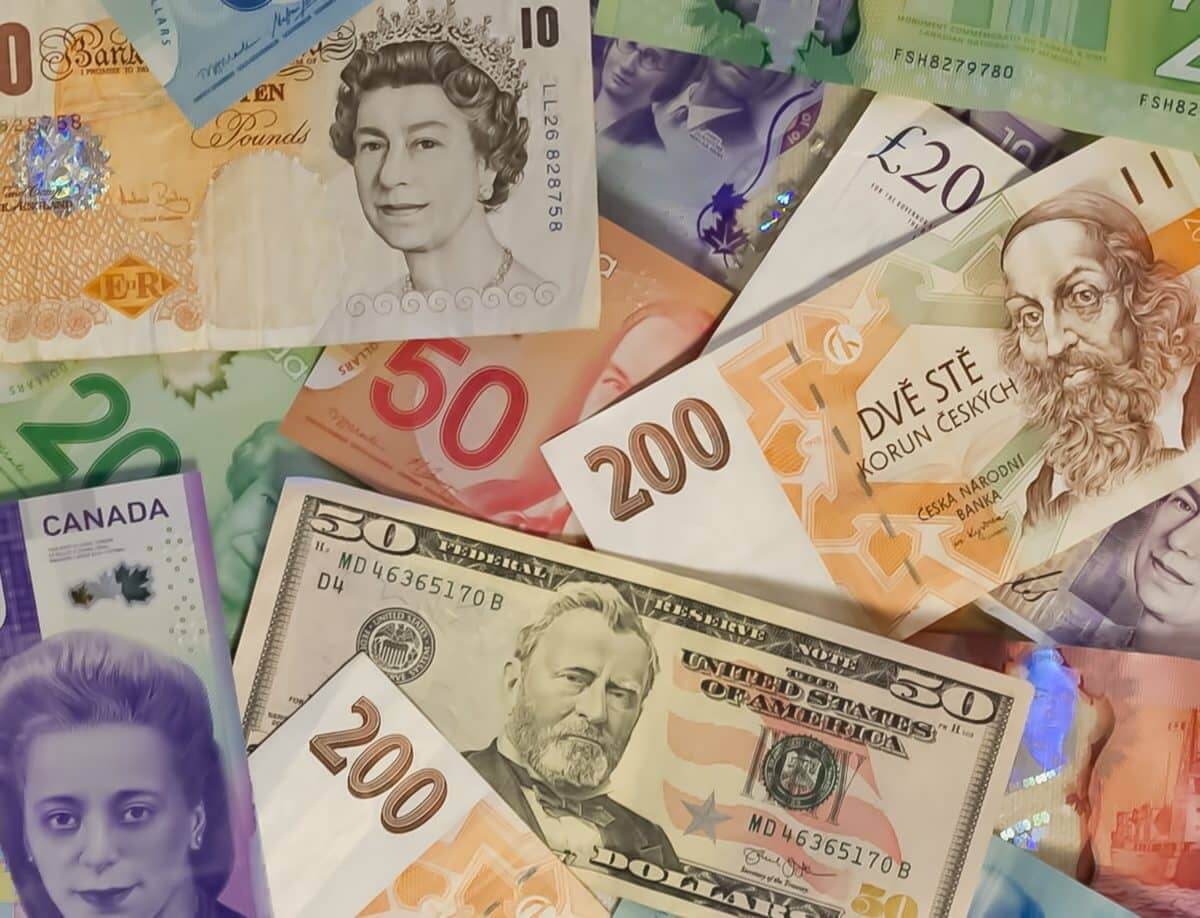
The Sterling surged forward Monday. What about the Dollar?
The British pound skyrocketed on Monday after losing significant amounts in the previous sessions. Britain’s new finance minister mostly abandoned the proposed multi-billion pound “mini-budget” plan. The pound soared by 1.2% versus the U.S. dollar at $1.13045 on Monday. It’s recovered nearly 10% in value since collapsing to a record low of $1.0327. That occurred shortly after the proposition of the mini-budget.
Prime Minister Liz Truss appointed Jeremy Hunt on Friday, who reversed large parts of the 45-billion pound “mini-budget.” The latter caused much turbulence in the forex markets, pushing the Sterling to record lows. Consequently, the Bank of England had to intervene and boost the currency. It gained as much as 1.4% after Hunt’s statement.
Kwasi Kwarteng’s package included unfunded tax cuts. That caused such uproar among investors that set off a bond market sell-off on September 23. However, Hunt replaced Kwarteng soon afterward. He announced that Britain needed to increase taxes as well as cut spending to rebuild confidence and stability.
Chris Beauchamp, the chief market analyst at IG, noted that market turmoil proved that the United Kingdom and its fiscal policies do not exist in a vacuum, isolated from other financial markets. Still, the government seems focused on retaining calmness and steadiness. Hunt has a reputation for being a “safe pair of hands.” Thus, traders extend more trust to him. They are willing to give the new chancellor time to put the government and its policies back in order.
At the same time, market participants are observing U.K. government bonds. The latter surged forward on Monday, adding to investors’ confidence in the broader market.
How is the Japanese Yen faring?
The yen tumbled down to a new 32-year low of 148.895 versus the U.S. dollar today. If the currency continues trading in the red, the Bank of Japan will likely intervene again to support it. The government already intervened last month, purchasing the yen for the first time since 1998. The BOJ maintains its ultra-low interest rates policy, unlike other central banks. This decision has sent the yen to record lows this year.
On Monday, Japanese authorities reiterated its previous warning about issuing a firm response to overly rapid yen decreases. ING strategist Francesco Pesoles stated that allowing a move above 150.00 could trigger an acceleration of the Yen sell-off, but Japan is trying to avoid that.
Meanwhile, the U.S. dollar plummeted against a basket of six major currencies on Monday. It exchanged hands lower by 0.1% at 112.88. On the other hand, the euro soared by 0.3% to $0.9749.
What about the EM currencies?
Emerging market currencies ended in the red today. The Czech crown remained subdued after producer prices rallied unexpectedly in September. Overall, MSCI’s index of EM stocks dropped by 0.3%, while currencies tumbled by 0.2%. The South African rand was an exception, managing to gain 1% against a declining greenback.
On the other hand, the Turkish lira weakened in early trade, and the Russian rouble plummeted against the U.S. dollar. Geopolitical risks weigh on Russian markets as the country continues the invasion of Ukraine.
On Monday, China’s onshore yuan lowered against the U.S. dollar. However, losses were capped thanks to major state banks’ intervention to stabilize the local currency. President Xi recently demanded the government accelerate the building of a world-class military. Analysts widely expect Xi to win a third leadership term.
Moreover, central and eastern European currencies tumbled down in early trading on Monday. The Polish zloty suffered the most losses versus the euro. Thus far, interest rate hikes have been sufficient. Tighter monetary policy would only exacerbate the economic slowdown, – noted Ireneusz Dabrowski, a Polish central banker.
The Czech crown was also muted against the common currency today. According to new data, producer prices increased in September along with energy costs, soaring by 1.2% on a monthly basis and 25.8% year-on-year.
Piotr Matys, the senior FX analyst at In Touch Capital Markets, stated that the latest Czech data shows evidence that pipeline inflationary pressure is still high. However, the Czech central bank ended its tightening cycle only a few months ago. Thus, it likely won’t start raising interest rates anytime soon, especially considering Czech rate setters’ growing confidence that inflation has hit its highest point or is very close to peaking. They are currently more concerned about the economy.




